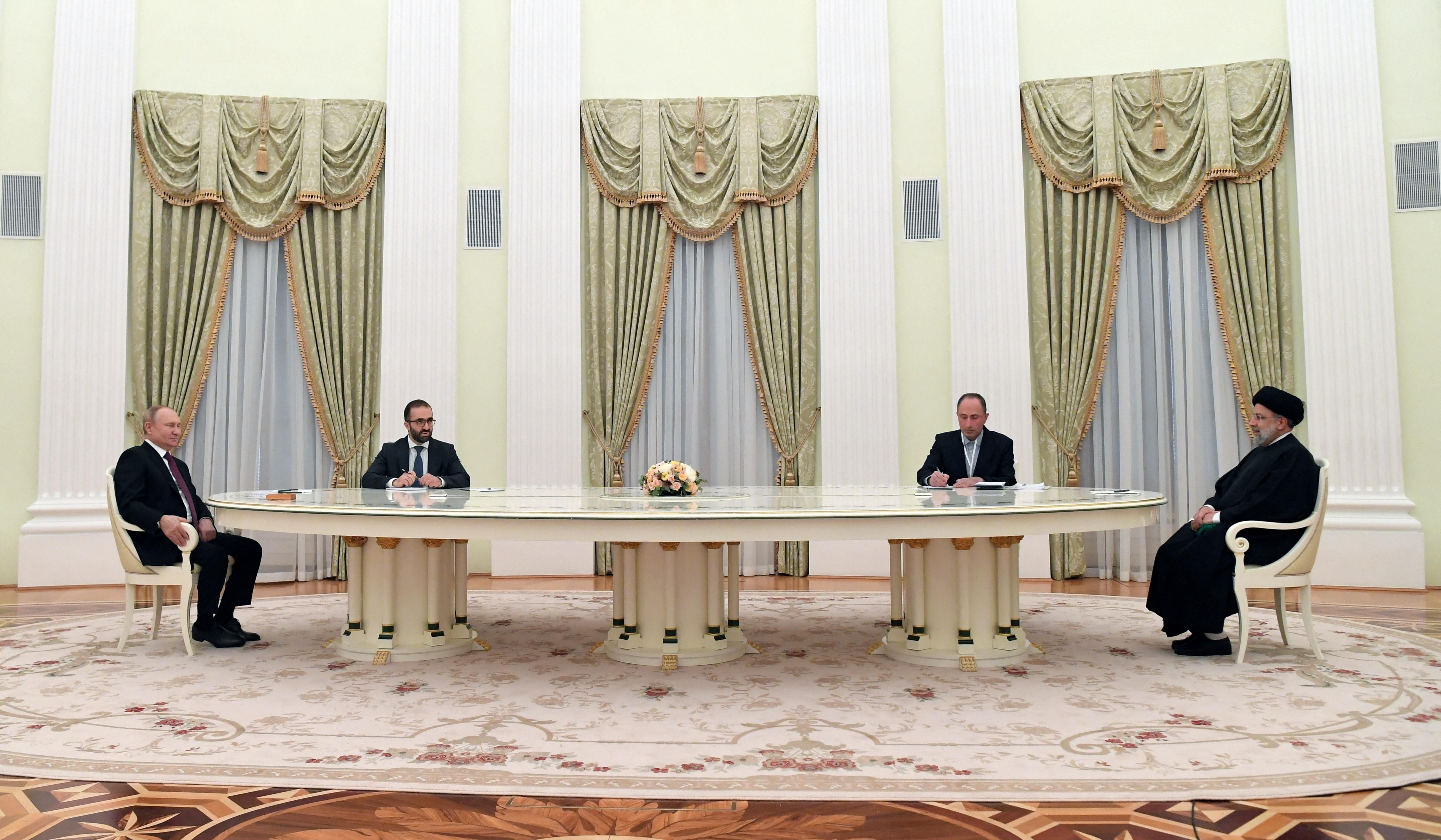What We’re Watching: Iran-Russia lovefest, East Jerusalem tensions, Kim Jong Un acting up
Iran and Russia heart each other. The presidents of Iran and Russia have little in common personally, but they share many geopolitical interests, including in Afghanistan and Syria. They also have a common resolve in countering "the West.” These issues are all on the agenda as Vladimir Putin and Ebrahim Raisi held their first in-person meeting in Moscow. Raisi is a hardline cleric who leads a theocracy with nuclear ambitions. Vladimir Putin, meanwhile, is a wily autocrat who enjoys provoking America and Europe, and has ambitions to return to the glory days of the territorially expansive Soviet Union — as seen with the Kremlin's recent provocations on the Ukrainian border. With the Iran nuclear talks on life support and Joe Biden already bracing for Russian troops crossing into Ukraine, Tehran and Moscow now have even more reasons to scheme and cooperate. Indeed, Moscow and Tehran have increasingly been cooperating on energy and security issues (Iran might be buying Russian military technology) as their respective relations with the West deteriorate.
Will Sheikh Jarrah eviction spur more unrest? Israeli police evicted on Wednesday a Palestinian family from their home in the Sheikh Jarrah neighborhood in East Jerusalem. The removal came after a court ruled against the Salhiyeh family in a land dispute with the municipality (East Jerusalem was controlled by Jordan before it was seized by Israel in the 1967 war). The Palestinians want East Jerusalem to be the capital of their future state. But after a years-long legal battle, the court ruled that the municipality can expropriate the land — which it plans to turn into a school (not handed over to Jewish settlers like in previous similar cases). Other Palestinian families also face potential expulsion from Sheikh Jarrah, a recent flashpoint in the broader Israeli-Palestinian conflict. Last year, protests over the proposed eviction of Palestinian families in the neighborhood set the stage for a brief war between Israel and Hamas, the Palestinian militant group which rules the Gaza Strip.
Kim Jong Un at it again. North Korea's supreme leader isn't top of mind for a preoccupied Joe Biden. And since he hates being ignored, Kim Jong Un is now trying to get the US president's attention by threatening to resume testing nukes and long-range missiles that could hit the US. (This is on top of recently firing off a bunch of hypersonic missiles.) Kim presumably wants to restart negotiations to lift crippling US economic sanctions in exchange for ending North Korea's atomic weapons program. But Biden has quite a bit on his plate at the moment, and would rather first sign a nuclear deal with the Iranians. Kim might have better luck with Moon Jae-in, South Korea's president, who wants to make peace with North Korea before he steps down after the election in March. The frontrunner to replace Moon favors détente with Pyongyang, but he's not yet assured victory against his hawkish rival, who wants the US to deploy tactical nukes on South Korean soil to deter the North Koreans.